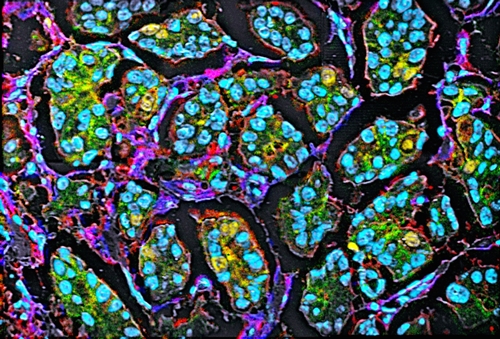23 June 2016. Biopharmaceutical company Celgene Corporation and a consortium of four medical research institutes are collaborating on new diagnostics and treatments for cancer. The four cancer centers will divide a $50 million initial payment from Celgene for the option to license future research technologies from their labs.
The consortium includes the cancer research institutes at University of Pennsylvania in Philadelphia, Columbia University in New York, Johns Hopkins University in Baltimore, and Mount Sinai medical school in New York. Celgene says each institution is committed to delivering new programs that can alter the course of the disease for individual patients and the public at large. However, no specific new treatments or technologies were announced.
Each institution is designated as a cancer center by National Cancer Institute, and conducts basic research, translational studies, and clinical trials, including advanced technologies such as immunotherapies and precision medicine. The medical centers have nearly 800 faculty conducting research or caring for more than 30,000 patients.
Each cancer center also has a technology transfer or research commercialization office. Under the agreement, each institution will receive an upfront payment of $12.5 million, with Celgene gaining the option to license research discoveries from the cancer centers over the next 10 years. The company says research programs at the four cancer centers could each be worth hundreds of millions of dollars.
Cancer treatments are a major focus of Celgene’s research and development, with programs underway investigating therapies for solid tumor — breast, lung, and pancreatic — cancers, as well as blood-related cancers such as leukemia and multiple myeloma. As reported in Science & Enterprise, Celgene often collaborates with academic institutions and biotechnology companies on cancer treatments. In September 2015, the company began a partnership with academic protein engineering labs, and in June 2015 announced a $1 billion licensing deal for immunotherapies with Juno Therapeutics.
Read more:
- Precision Medicine Shown to Boost Cancer Outcomes
- Engineered T-Cells Get Leukemia Response
- More Genomic Tests Enhance Personalized Cancer Care
- Collaborations Study Microbiome in Cancer, Metabolic Disease
- Therapy Shown to Boost Immune System Against Cancer
* * *


 RSS - Posts
RSS - Posts
[…] Celgene, Medical Centers to Partner on Cancer Therapies […]